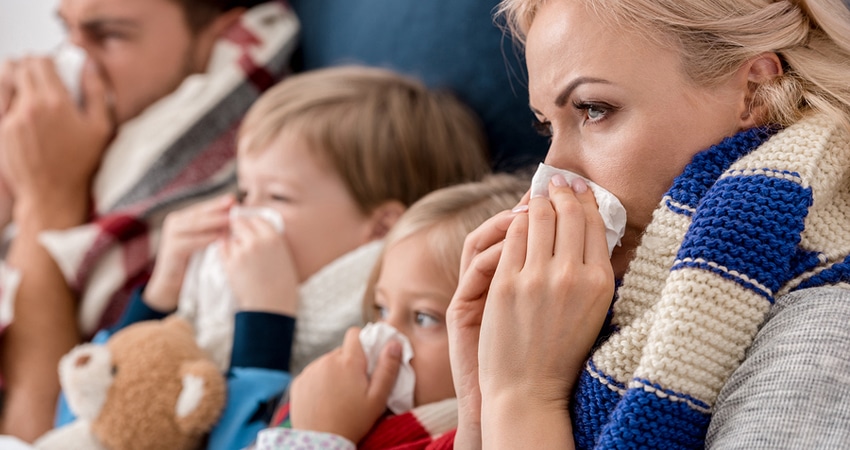
The Do’s and Don’ts of Medicine for Your Winter Cold
It’s hard to believe it, but cold and flu season is in full swing. When noses are running and coughs are wreaking havoc, patients often want to relieve their symptoms quickly without waiting for their health care provider. However, picking the right non-prescription product can quickly become overwhelming due to the wide variety of potential options.
Not only can selecting the right medicine be a challenge, but often times people accidentally take medicines that don’t react well with each other. To avoid complications, and to relieve symptoms, the following do’s and don’ts of cold medicines should be kept in mind.
Selecting The Right Non-Prescription Medicines During Cold And Flu Season
If you want to select the right types of medicines to relieve the common cold or flu, then you need to keep the following list of do’s and don’ts in mind:
- Do: Remember different classes of medicines. — Did you know that cold and flu medicines are available in various classes? Analgesics are pain relievers and often used to reduce fevers and aches. Antihistamines are used to relieve itchiness and to dry up bodily secretions (such as mucus from a runny nose). Cough suppressants are used for dry coughs. Expectorants can help you to clear thick yellow mucus from air passages. Nasal decongestants are especially helpful for clearing up stuffy noses.
- Do: Pick the medicine that treats the symptoms you are currently experiencing. — It’s important to note that many cold and flu medicines have ingredients to treat a wide variety of symptoms. With this in mind, you need to ensure that the non-prescription medicine is designed to treat your specific symptoms.
- Do: Keep in mind any pre-existing health conditions. — Did you know that many non-prescription medicines can negatively interact or affect individuals with certain pre-existing health conditions? With this in mind, it is important that you read the warning labels and speak with your medical professional regarding your choice of medicine and any pre-existing health conditions that you might have.
- Do: Drink plenty of water. — Whether you are suffering from a winter cold or flu, it is important that you remember to stay hydrated. Not only is it easy to become dehydrated when you are sick, but water also has the ability to act as an expectorant, which can help you to heal more quickly.
- Don’t: Exceed the daily maximum doses. — It is very important that you don’t exceed recommended doses for non-prescription medicines. It is especially important that you carefully follow acetaminophen labels, and that you avoid taking two or more products containing acetaminophen at the same time (unless you have otherwise been directed to do so by your doctor or pharmacist).
- Don’t: randomly select medicines. — When in doubt, it is far better to ask your pharmacist, than to randomly select a medicine for your winter cold or flu. Your pharmacist can help you to find the medicine to best treat your symptoms and put you on the road to recovery.
The Bottom Line: Follow Your Medicine Do’s And Don’ts
Whether you or your patient are suffering from a winter cold or flu, be sure to follow this list of do’s and don’ts to select the right medicine to treat your symptoms. Additionally, with the help of Atkinson’s Pharmacy you can learn more about what medicine to choose for yourself or your patients, as well as how to use the selected products safely. Contact a member of the Atkinson’s Pharmacy today to learn more about how you can fight a winter flu or cold.
